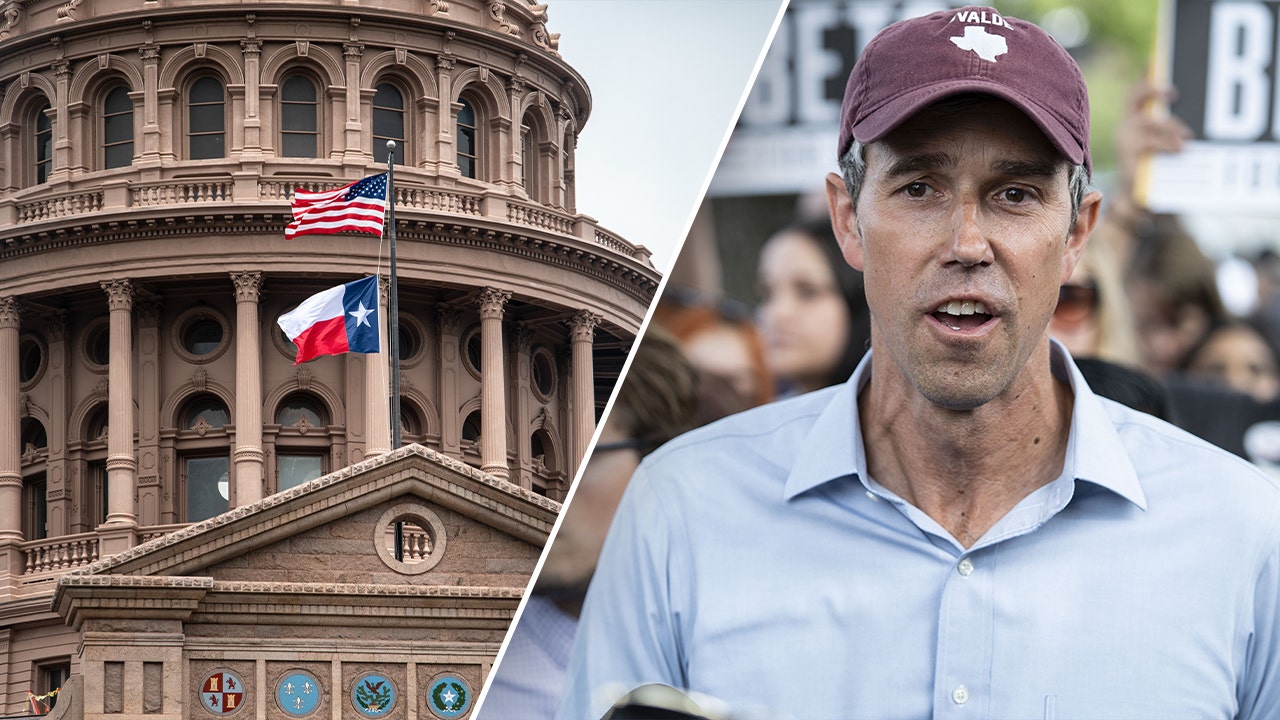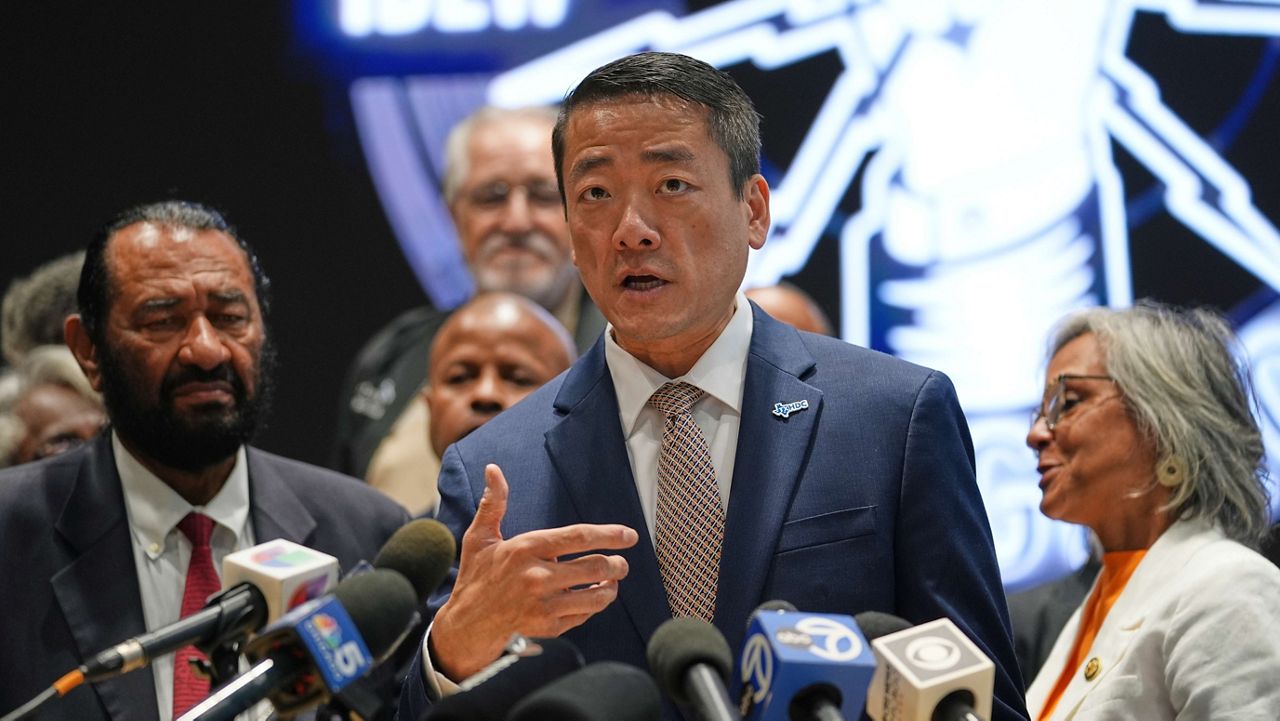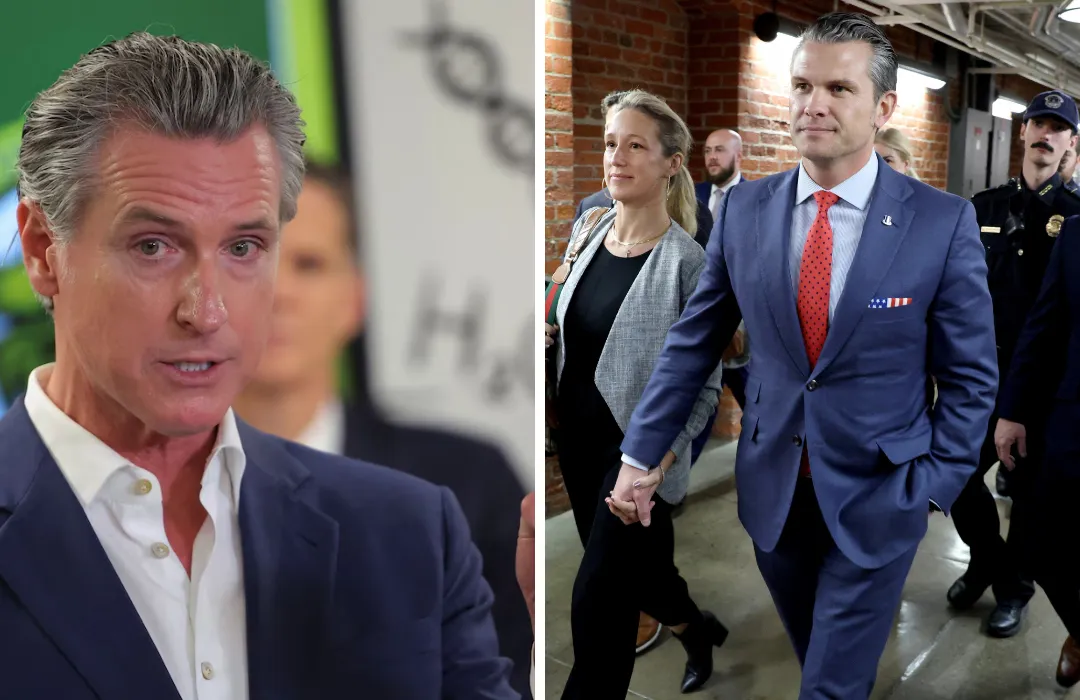
A Texas judge has issued a temporary restraining order against former Democratic Congressman Beto O’Rourke and his nonprofit organization, Powered by People, barring them from raising or distributing funds to support Democratic state legislators who fled Texas to block Republican redistricting legislation.
The order marks a significant legal win for Texas Attorney General Ken Paxton, who accused O’Rourke of engaging in unlawful fundraising practices that subsidized lawmakers’ personal expenses while they were absent from the state.
Tarrant County District Judge Megan Fahey, who was appointed to the bench in 2019 by Republican Governor Greg Abbott, issued the ruling Friday evening.
The case centers on efforts by O’Rourke’s nonprofit to provide financial support for Democratic lawmakers who left Texas in protest of redistricting legislation backed by the Republican-controlled legislature.
In her 12-page order, Judge Fahey wrote that O’Rourke and Powered by People had engaged in “unlawful fundraising practices” tied directly to the support of absent lawmakers, often referred to as “AWOL Dems.” According to her decision, the nonprofit’s efforts violated Texas campaign finance laws.
“Defendants have and will continue to engage in unlawful fundraising practices and utilization of political funds in a manner that either directly violates or causes Texas Democratic legislators to violate [the law],” Fahey stated.
“Consumers have and continue to suffer irreparable harm through these unlawful acts because they are making political contributions that are being used to fund personal expenses and violate state law.”
The order prohibits O’Rourke and his group from raising or distributing money to lawmakers for costs such as travel, lodging, or paying daily fines imposed for their absence from the state legislature.
The restraining order was granted just hours after Attorney General Paxton filed his petition. Paxton, a Republican who has served as Texas attorney general since 2015, celebrated the ruling as a decisive victory against what he described as deceptive fundraising operations designed to protect partisan interests.
“Cry more, lib,” Paxton said bluntly in response to O’Rourke’s criticism. “You lost in court because you’re breaking the law and deceiving Texans. We absolutely will make an example out of law breakers.”
Paxton later took to social media platform X to emphasize the outcome. “BREAKING: I just defeated Beto O’Rourke in court. We secured a major victory stopping runaway Democrats from taking ‘Beto Bribes’ and preventing deceptive fundraising. They told me to ‘come and take it,’ so I did,” he wrote.
Paxton has also launched an investigation into the Texas Majority PAC, another group accused of funding the absent Democratic lawmakers. His office argues that these organizations funneled resources into helping legislators avoid legislative sessions rather than participate in the democratic process.
O’Rourke, who represented Texas’s 16th congressional district from 2013 to 2019 and ran unsuccessfully for both the U.S. Senate in 2018 and the Democratic presidential nomination in 2020, responded defiantly to the ruling.
In a public statement, O’Rourke accused Paxton of trying to silence him and dismantle his nonprofit.
“Ken Paxton wants to shut down our nonprofit because our volunteers fight for voting rights and free elections,” O’Rourke said. “This is the kind of work that threatens the hold that Paxton, Trump, and Abbott have on power in Texas.”
He added: “They want to make examples out of those who fight so that others won’t. Now Paxton’s filed a restraining order to try to take us out of the fight. He wants to silence me and stop me from leading this organization. He wants to stop us from fighting Trump’s attempt to steal the five congressional seats he needs to hang on to power. But I’m not going anywhere. I plan on speaking at our rally to stop the power grab in Fort Worth tomorrow afternoon.”

In addition to his public remarks, O’Rourke filed a lawsuit against Paxton in El Paso district court the same day as the ruling, arguing that Paxton’s investigation into Powered by People amounted to a “fishing expedition.” He is seeking judicial intervention to block the probe into his organization’s activities.
The controversy traces back to Democratic lawmakers leaving Texas in an attempt to prevent the state House from reaching quorum during debates on Republican-backed redistricting and election security measures.
The Democrats’ absence brought legislative sessions to a halt, drawing sharp criticism from Republicans who accused them of dereliction of duty.
To sustain their absence, Democratic lawmakers relied on outside financial support for expenses such as air travel to Washington, D.C., hotel accommodations, meals, and even fines levied by Texas leadership for their refusal to attend sessions.
O’Rourke’s nonprofit, Powered by People, emerged as a significant backer of these efforts. Through fundraising campaigns, the group collected donations from across the country, channeling money into keeping Democratic lawmakers afloat while they staged their boycott.
Attorney General Paxton argued that these actions amounted to the misuse of political contributions for personal expenses, which state law prohibits. Judge Fahey agreed, saying the group’s fundraising violated state statutes and posed ongoing risks of further unlawful conduct.
The restraining order has deepened the already bitter partisan divide in Texas. Republicans have framed the ruling as proof that Democrats and their allies are willing to break laws to subvert the legislative process.
Representative Briscoe Cain, a Republican state legislator, applauded the decision. “Democrats abandoned their duties, and now we see they had help from organizations breaking the law to fund their obstruction. Justice is being done,” Cain said.

Democrats, however, view the restraining order as part of a larger campaign of political retaliation. State Representative Rafael Anchia, a Democrat from Dallas, said the ruling was “a blatant attempt to criminalize political opposition” and warned that Paxton’s actions set a dangerous precedent.
For O’Rourke, the legal battle offers both risks and opportunities. While the restraining order complicates his nonprofit’s operations, it also gives him another platform to rally supporters around voting rights and opposition to Republican dominance in Texas politics.
The case reflects ongoing national tensions over voting rights, election laws, and partisan maneuvering. Democrats argue that Republican-led redistricting efforts in Texas are designed to secure and expand GOP control by drawing maps that dilute minority voting strength.
Republicans counter that the new maps comply with the law and reflect population changes recorded in the census.
By leaving the state, Democratic lawmakers drew national attention to the issue, framing their walkout as a stand for democracy. But by seeking outside funding to sustain their absence, they opened themselves to legal challenges about the propriety of those contributions.
Judge Fahey’s order may be temporary, but it underscores the legal vulnerabilities that come with unconventional forms of political protest.
Texas Governor Greg Abbott, who appointed Judge Fahey to her seat in 2019, has strongly backed Attorney General Paxton’s efforts. Abbott, a Republican who has made election security and immigration enforcement top priorities, has repeatedly criticized Democratic lawmakers for abandoning their posts.
“This is about accountability,” Abbott said during a recent interview. “When you’re elected to serve in the legislature, your duty is to show up and do the people’s work. Running away from that responsibility and relying on partisan nonprofits to bankroll it is unacceptable.”

Abbott’s alignment with Paxton on this issue further solidifies the Republican Party’s unified front against what they view as Democratic obstructionism.
The restraining order remains in effect while the case moves through the courts. O’Rourke’s countersuit in El Paso could complicate the legal picture, as judges in different jurisdictions may issue conflicting rulings.
Legal experts suggest that the case could ultimately reach the Texas Supreme Court, which currently holds a Republican majority. If that happens, the outcome could set a precedent not only for Texas but also for how states handle outside fundraising in future partisan standoffs.
In the meantime, Powered by People must halt all fundraising connected to supporting Democratic lawmakers who left the state. That limitation may hamper the group’s ability to remain a central player in Texas politics.
The restraining order issued by Judge Megan Fahey against Beto O’Rourke and his nonprofit, Powered by People, is the latest flashpoint in Texas’s fierce partisan battles.
Backed by Attorney General Ken Paxton and supported by Governor Greg Abbott, the ruling highlights Republican efforts to rein in what they describe as unlawful fundraising and political gamesmanship.
For O’Rourke, a former congressman and high-profile Democratic figure, the case represents both a legal challenge and a political opportunity. By framing Paxton’s investigation as an assault on voting rights activism, O’Rourke is attempting to galvanize his supporters while navigating significant legal hurdles.

As appeals and counterclaims unfold, the case will test the boundaries of political protest, nonprofit fundraising, and state authority over campaign finance laws. It also underscores the intensity of partisan conflict in Texas, where disputes over redistricting, voting rights, and political accountability continue to shape the state’s—and the nation’s—political future.




